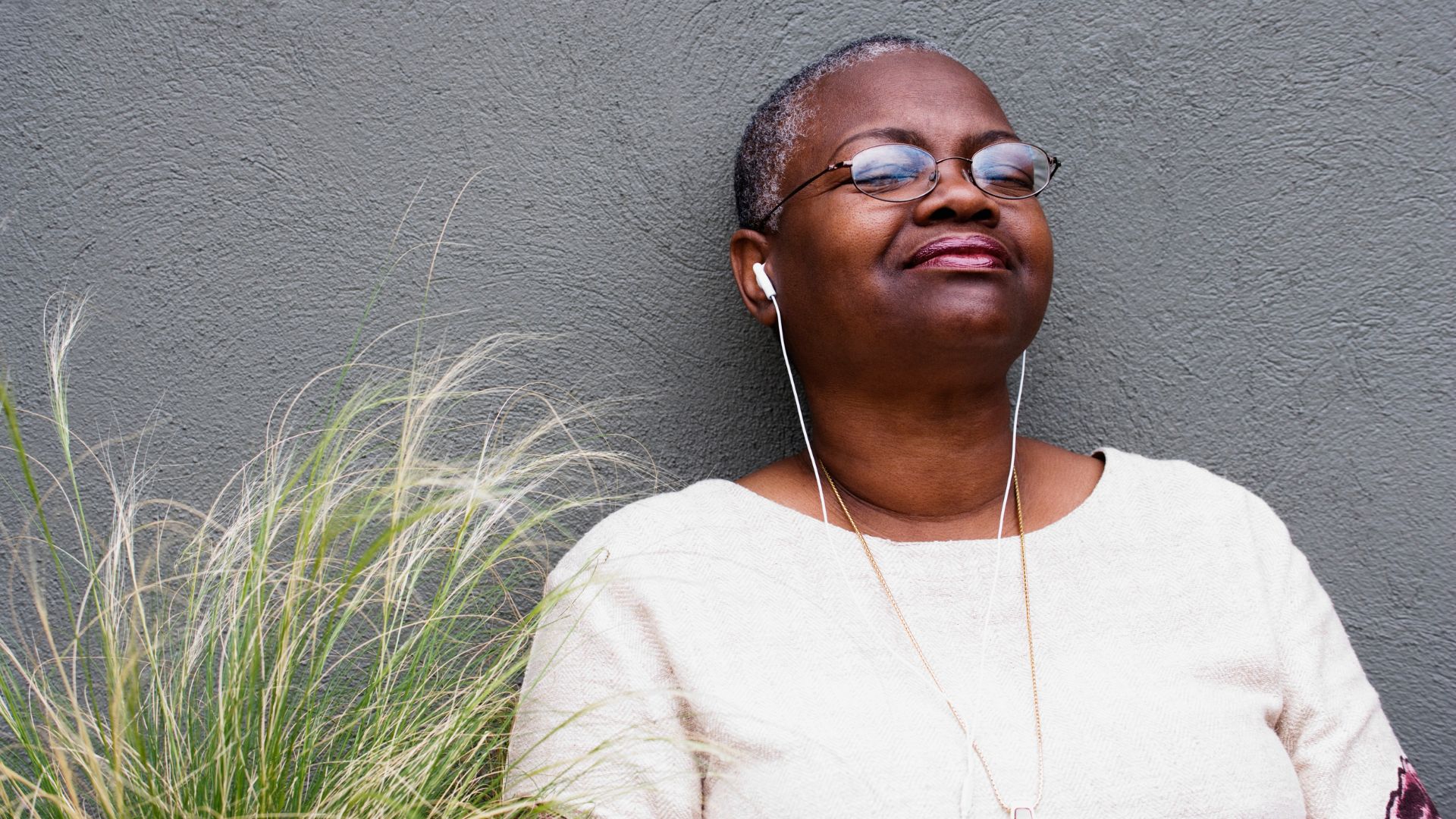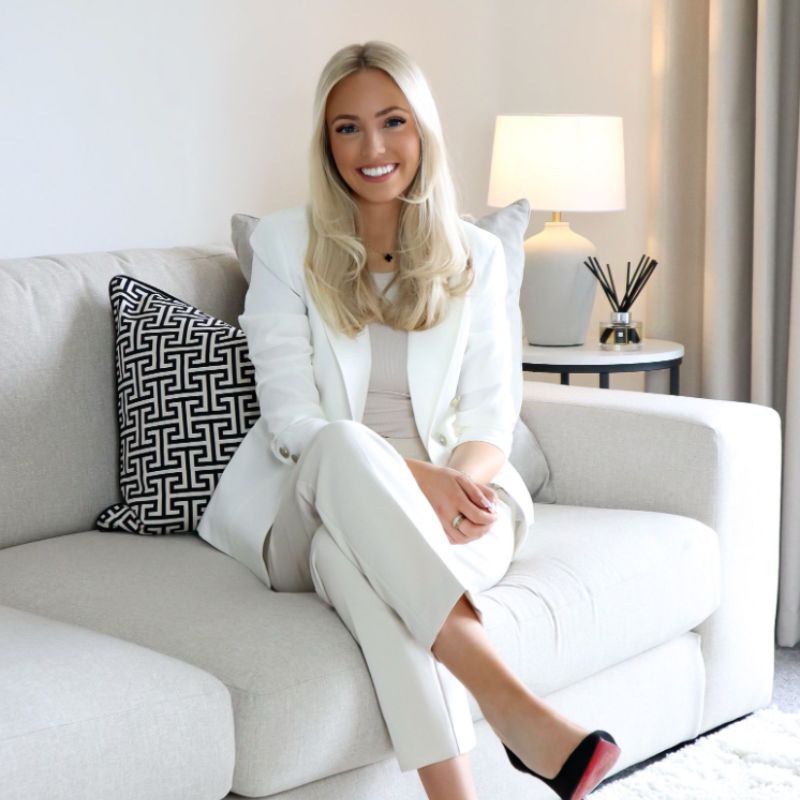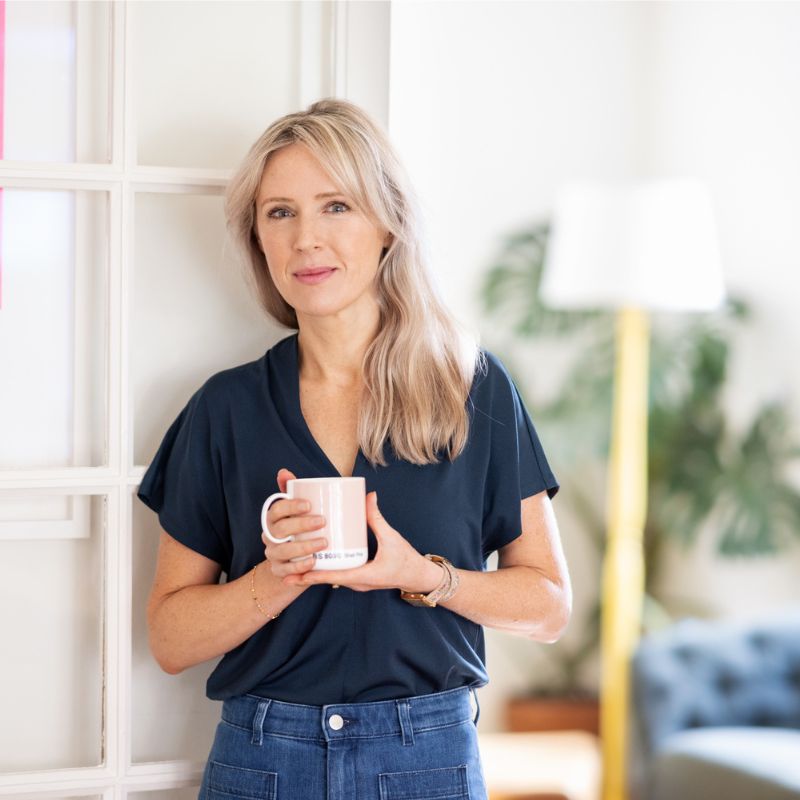How to stop feeling sad: 8 tips to remove the gloom this year
Many of us want to know how to stop feeling sad early in the year. Here, psychologists and wellness experts reveal their expert tips and why acknowledging sorrow is the key


Grace Walsh
If the January blues are getting to you and you're wondering how to stop feeling sad, you're not the only one. Here, bestselling author of How to Be Sad: The Key to a Happier Life, Helen Russell, explains the positives of indulging a little in the new year gloom and how to perk yourself up when you need to, with insights from other leading experts.
We’ve all been brought up to feel that being happy is good and being sad is not. Yet while we may aspire to be shiny, happy people, the ‘good vibes only’ approach needs a rethink. Most of us are so scared of being sad we jeopardise our chances of being happy - or really living at all. By contrast, allowing for temporary sadness helps improve our attention to detail, increases perseverance, promotes generosity, makes us more grateful for what we have, and teaches us how to be happier in the longer term.
It's also very normal to be feeling a little more sad than usual at this time of year. "In human terms at this point in the year we will feel extremely under par especially if we have not had any summer sun. We have little to look forward to, the days still feel dark and short, plus the weather in the UK is not that great which in itself leads to feelings of oppression and anxiety," says neuroscientist Dr Rachel Taylor. The good news is we can all get happier and learn how to stop feeling sad, by learning to embrace the feelings we have.
How to stop feeling sad
1. Don't fight the feeling
Fear of facing our sadness can feel overwhelming, but studies show that if we aim to avoid sadness, even a little, we put ourselves at greater risk of normal sadness tipping into something more serious. Even crying serves a purpose when it comes to learning how to stop feeling sad, researchers from the University of Rijeka say. Criers typically experience fewer ‘negative aggressive feelings’, such as rage and disgust, and cortisol levels decrease in those who cry because expressing sadness soothes us.
Set a timer for five minutes a day to check in with your emotions. No phone, no TV, no distractions. Forget holding back the tears and cry when you need to. How do you feel? Why might that be? Remember, sadness is a message. It can tell us what’s wrong and what to do about it – if we listen.

Journaling can be a useful tool to help make sense of your emotions.
2. Get some fresh air
Being outside may not solve all your problems but it can certainly help you learn how to boost your mood in an instant. "Get outside as soon as you can when you wake or when the sun has risen," says Dr Taylor. "We need at least 10 minutes to get enough serotonin to support our cycles." The idea of a workout in cold weather doesn't appeal to most of us but if you can combine this with a gentle bout of walking meditation or a gentle run and you have the mental health benefits of exercise as well.
When we don't see daylight, we produce less serotonin, she says. "Plus the serotonin receptors are more sensitive in winter, so it stays in the synapses at a lower rate as there is a faster uptake."
Sign up to our free daily email for the latest royal and entertainment news, interesting opinion, expert advice on styling and beauty trends, and no-nonsense guides to the health and wellness questions you want answered.

Dr Rachel Taylor is the neuropsychologist with a background in cognitive neuroscience and a passion for understanding the human brain and body. She holds a PhD and has studied diverse fields like Psychology, Molecular Biology, and Education.
3. Lower your expectations
Many of us have been taught to aim high, no matter what. But when we’re sad, we’re not going to nail it at work, write that novel, or bake the perfect sourdough. And that’s OK. We need to be kind to ourselves and rest.
In winter, with the new year behind us, it can be tempting to try and create big resolutions. Whether that involves
Think about how you’d treat a child having a tough time – early nights, nourishing food, plenty of hugs, probably. Sometimes, it’s our job to look after our inner child. Avoid excess or deprivation as well - wine is seldom the answer long term.
4. Reach out to others
While knowing how to be happy alone is important, the frequency of contact with people we care about is one of the key indicators of happiness worldwide. But, partly due to lockdowns in previous years, many of us have had to deal with loneliness and feel less connected and less supported than before. Women tend to have more friends and socialise more than men, so we’ve felt that loss of connection more keenly.
We need to reconnect and we need to talk more to learn how to stop feeling sad. Psychotherapist Julia Samuel says that talking about sadness "does not have to be with a therapist". What’s most important is "talking to someone who doesn’t interrupt". Enlist a friend and make a deal that you will be each other’s ‘buddy’ for a regular check-in. When they talk, listen without interruption and without trying to ‘fix’ anything – and vice versa. This helps us develop a narrative around our situation and, as Samuel explains, "In enunciating the words, the feelings emerge."
Equally, part of the fun of socialising is relaxing and spending time with those we love. "Laughing and connecting with other people increases endorphins and dopamine, and we get DHEA, a restorative hormone produced in the adrenal glands," says Dr Taylor. "This is an all-nature mood pick-me-up."
Julia Samuel MBE is a psychotherapist, author, and speaker. She is the author of books including Grief Works and This Too Shall Pass.
5. Open your mind
Listening to music has been shown to be a comfort, with studies by the University of Queensland revealing that it can boost cognitive health, improve social relationships when done with others, and generally boost our mental wellbeing. Even playing sad music when we’re low can feel like having a companion, which may actually makes us feel better.
Reading can also boost empathy and help us connect. Brain scans show that when we read, we mentally rehearse the activities, sights and sounds of a story, so try reading or listening to an audiobook.

6. Set realistic goals
In times of sadness, it can be tempting to make big changes, with the view that changing how life is now will make us feel better. Whether that's starting a new job, a new relationship, or a new plan for the future, it's better to keep goals, any late New Year's resolution ideas and ambitions realistic during this time, says Dr Taylor.
"Instead, every day do an exercise where you appreciate who you are and what you have done as this will raise your feelings of value, self-worth and self-esteem which will again help to make your mood more buoyant," she says.
7. Do something for someone else
If you’re sad and you do something just for you, chances are you’ll still be sad. We need to do something for someone else to learn how to stop feeling sad. Studies show that giving our time to do something for someone else makes us feel better and, counter-intuitively, makes us feel as though we have more time, researchers at the City University of Hong Kong reveal. Donating to charity helps us feel good too. This is known as ‘warm-glow giving’ or ‘helper’s high’. MRI scans show that our brains literally light up, glowing with the pleasure of ‘doing good’.
Make a regular donation to charity, offer to shop for an elderly neighbour or volunteer at a food bank, the local scouts or girl guides – wherever it means the most to you. We should help other people because it’s the right thing to do – the warm glow and ‘helper’s high’ is a bonus.
8. Shake off the 'sorry' shame
The average Brit says ‘sorry’ 233,600 times in their lifetime and, while we should all apologise if we have done something wrong, we should not apologise for feeling. There’s shame attached to feeling sad in a world that tells us we shouldn’t – and shame increases cortisol levels, and decreases our self-esteem and feelings of social worth. The antidote? Vulnerability.
Next time you feel the hot flush of shame or you’re about to utter the ‘s’ word (‘sorry!’), stop and think ‘Have I actually done something wrong? Or is this habit?’ If it’s the latter, take a box breath (inhale for a count of four, hold for four, exhale for four, hold for four). Be honest about how you’re feeling. We shouldn’t be ashamed of our emotions and shouldn’t apologise for feelings. Ever.
What are January blues?
The experts agree it's normal to feel a little low in January as once the 'new year, new me' feeling wears off and the anticipation of the holidays (good or bad) is gone, we have to pay the price, says Ali Ross, psychotherapist and spokesperson for the UK Council for Psychotherapy (UKCP). "If we’re out of rhythm with ourselves, it can be a very difficult time to get ourselves going and if we’re struggling for meaning, purpose or motivation this is made all the more stark at this time of year," he says.
But it's not only the excitement of the holidays wearing off, potential nervousness for the new year incoming, and a lack of daylight sapping energy levels and leaving us unable to wake up early in winter to get the day started, he notes. Think back to years gone by if you're feeling sad this January - is there a blind spot?
"This could be a general malaise about where and how they find themselves in their lives or pertain to something more specific like a significant bereavement with an anniversary that lands at this time of year," says Ross. "It is worth exploring this, not least in therapy."

Ali Ross, is a UKCP-registered psychotherapist based in London. His main work outside of private practice was as a specialist cancer and palliative care psychotherapist in the NHS. He trained in Existential Psychotherapy, which provides him with a philosophical outlook on life and the inevitable struggles within it. He has worked across a range of areas, including domestic abuse prevention, a NHS drug treatment service and alongside charities including Child Line and Mind.
Interest in beating the winter blues tends to shoot up in the first few weeks of January thanks to a phenomenon known as 'Blue Monday', deemed the 'saddest day of the year'. Yet, there's no scientific backing behind it. "Blue Monday was originally a PR stunt used to sell holidays based on the idea of gloomy January weather, post-Christmas debt, disappointment from not keeping up with New Year’s resolutions and dissatisfaction from returning to work," says Jade Thomas, psychotherapist and founder of the Luxe Psychology Practice. "The idea of Blue Monday is often designed to promote things that are loosely linked to improving our well-being, but no scientific evidence has backed claims about Blue Monday."

Jade Thomas BSc MBACP is a psychotherapist and the founder of the Luxe Psychology Practice. Jade studied Psychology for 10 years and is a Registered Psychotherapist with the British Association for Counselling & Psychotherapy and is due to complete her Doctorate in Psychology in September. Her Qualifications include BSc Psychology, BACP Registration (Registration no. 392323) and Final stage of Counselling Psychology Doctorate (PsychD).
Helen Russell is a journalist and bestselling author. Her new book, How to Raise a Viking - The Secrets of Parenting the World’s Happiest Children, is published by 4th Estate, February 15th.
- Grace WalshHealth Channel Editor
